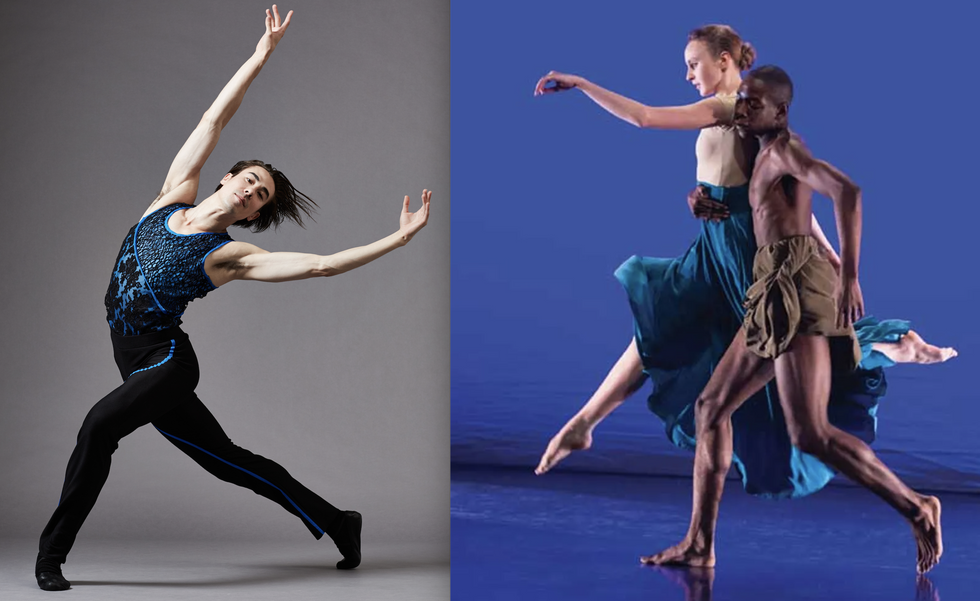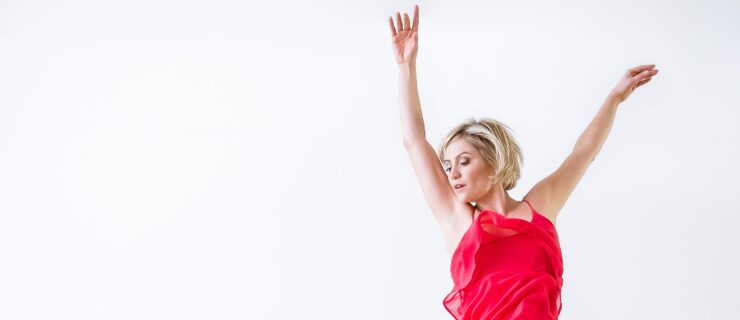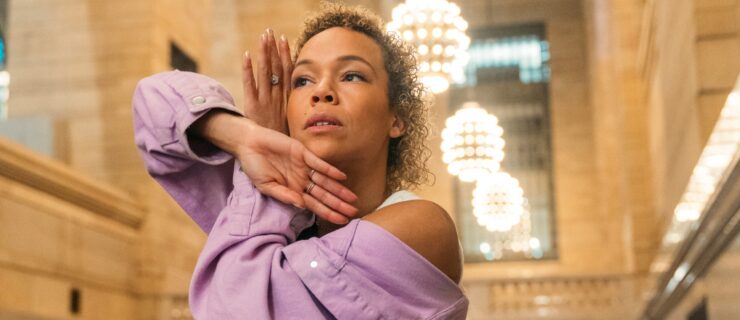How a Freelancer’s Career Compares to a Full-Time Company Member’s
When Kaitlyn Gilliland was an apprentice with New York City Ballet in 2006, choreographer Eliot Feld created Étoile Polaire for her, a 12-minute solo that predicted the person and artist Gilliland would eventually become—a force transitioning gracefully through different realms with a powerful sense of self.
After leaving NYCB, Gilliland went on to have a career as a much sought-after freelance dancer, working with Feld, Benjamin Millepied and Twyla Tharp, to name a few. She also got her undergraduate degree in psychology from Columbia University, taught at the School of American Ballet and, this spring, graduated from the Yale School of Management with her Master of Business Administration.
Kaitlyn and I have been friends since our time together at NYCB and SAB. I caught up with her as she “recovers from a very virtual last quarter” at Yale to discuss how her path as a freelance dancer compares with my company experience as an NYCB soloist, and how the pandemic has led to intersections between our two different worlds.
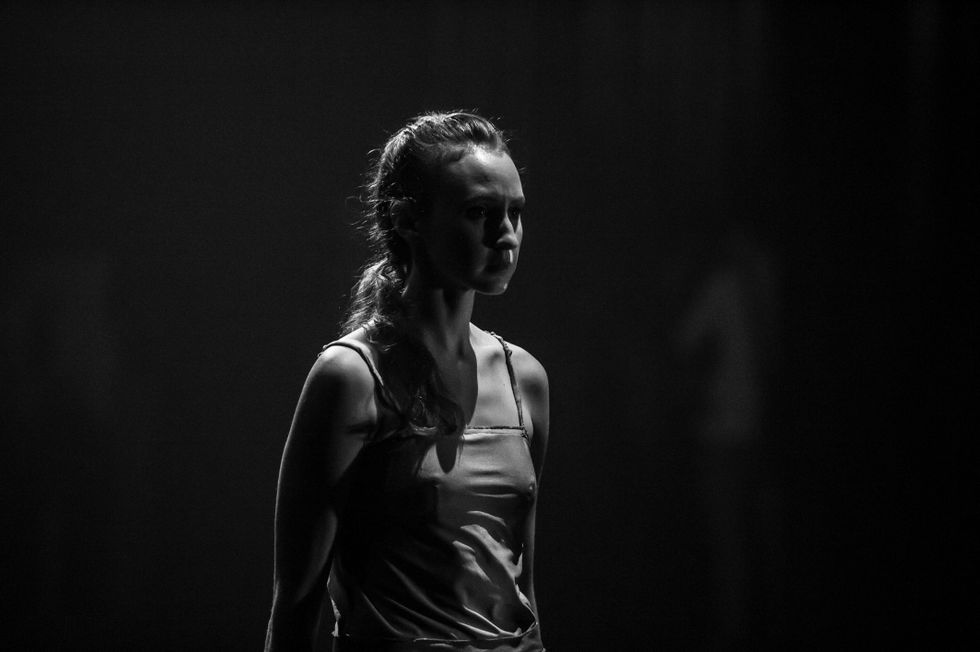
Photo courtesy Gilliland
Daniel Applebaum:
Congratulations on your MBA!
Kaitlyn Gilliland:
Thank you! I didn’t believe it was real until I received my diploma in the mail. I had plans for a full-time job after school that ended up falling through because of COVID. I wandered back into doing a little freelance work and am lucky I was able to dance and teach this summer. I feel so much for all of you who have been offstage and are looking at this famine when it comes to performance.
DA:
In a way, everyone is a freelancer now. In order to find work, we have to generate that work.
KG:
There is this idea that freelance dancers have more freedom to go out and explore different artistic avenues. That was the way I romanticized it for myself. Yes, I got so much out of that artistically, but most of my time was spent making schedules and planning my own logistics. I was in constant fear of not having anything next.
DA:
For a certain personality type, even within a company where there is a built-in security for performances, there’s the lingering fear of no longer being a viable artist.
KG:
Now it seems like you’re faced with this opportunity and challenge to not rely on the company’s consistency—the defined schedule, the opportunities to be onstage. I think about my own transition from NYCB to freelance. It’s always out of necessity. Necessity and love, but it’s necessity first. I need to work. I need to support myself. And then, on another level, it’s “I want to be onstage. I love this.”
DA:
There is a luxury being in a company because the financial aspect is taken out of the equation. The focus is on, “Who am I as an artist? What am I producing? How am I being cast?” For a freelancer, the focus is not only those artistic things, but also daily survival. You are your own boss.
KG:
There is a lot of discipline in freelance work. Doing all of that administrative work can often take precedence over dancing. I get up and I go to class every day. I go to rehearsal and leave this much time for arranging my next steps, my next rehearsal or looking over contracts. I was very much encouraged by the in-person nature and community aspect of our work. Even if I was running from group to group, I made strong connections with people and that made it easier to motivate myself to put my days together.
DA:
Looking back at all the people that you’ve worked with, how much of that is you generating those connections and how much—and I very much believe you do this—is you actively inspiring people to create this work around you?
KG:
When I was working towards my MBA, I realized that I’m passionate about making other people’s ideas come to life. I don’t want to be the creator. I want to be a collaborator. The person who helps to shape and form ideas. That’s exactly what I did as a dancer and I think it is about connecting with people and getting excited about their ideas. As a dancer, you are often the first audience for a choreographer’s work. If you offer them criticism or hesitation right away, that’s your commentary right there. I would try to find people whose ideas I really like, and then try to enable them. I’m curious if you see yourself in the same way?
DA:
I think one of my strengths is that I’m a good person to have in a room. I’m game and I enjoy working in spaces that have a sense of community. Hopefully, I bring the same positive energy that I feeI from the colleagues I work with consistently. There are a lot of wonderful people that have a goal of building an environment that is conducive to the creative process. In a freelancer’s career, you’re always generating new work and being a part of new work. It seems that it’s much more ephemeral than the work of someone who’s in a company that has this infrastructure to preserve everything. What does that feel like?
KG:
It feels much more ephemeral [both laugh]. That is exactly what it feels like. When we transition from dance, we have to talk about what we did. Business school taught me that I can write “originated this, that and the other” 50 times on a resumé, and people don’t know what that means. “Creator,” “producer” and “choreographer” they recognize. As a freelance dancer, I was already thinking, “What can I be other than a dancer? Can I be a co-creator, a producer, a curator?” How did you feel producing a live performance for the Dancers of NYCB fund?
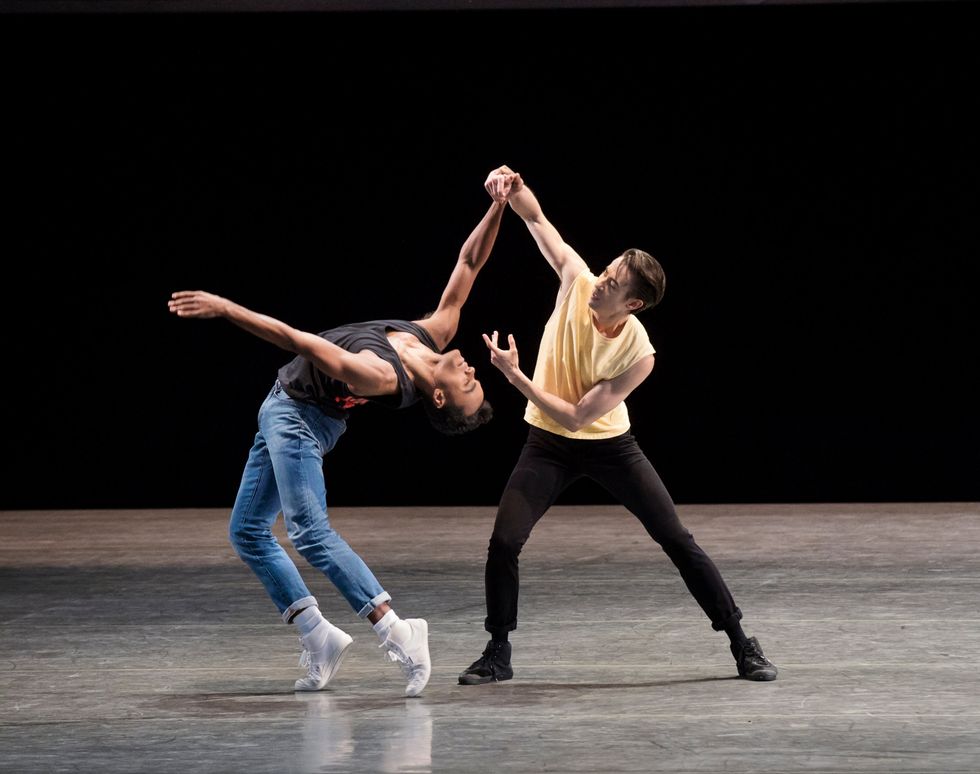
The Times Are Racing Paul Kolnik, Courtesy NYCB
DA:
It was engaging, fun and satisfying in the most time-consuming and stressful way. I loved it! I co-produced the event with our mutual friend, [NYCB soloist] Lauren King. She’s one of my favorite people to dance with and I felt our chemistry equally offstage doing that curatorial and administrative work. It’s great to know those relationships can be transferable. We were lucky to have all these intelligent NYCB artists who understood what we were trying to achieve. There was so much to accomplish in such a short amount of time, and it was an all-hands-on-deck moment for us.
KG:
It sounds like it highlighted some of the responsibilities that, by being in a larger company, have been taken care of for you. And then there’s also that gratitude for the community that transcends the theater.
DA:
Yeah, in a company it’s very easy, and sometimes even encouraged, to put your blinders on. By nature of your career, you didn’t have these same blind spots. How did all of that work you had to do as a freelancer affect your life in business school? How applicable was that skill set?
KG:
Can I be completely frank? [laughing]
DA:
Yes.
KG:
Not applicable at all [both laugh]. I got to school, and I was like, “What is going on? What am I learning?” What is transferable, and it’s cliché, is the discipline and self-sufficiency that I believe exists also in the company environment. Even when you’re provided with classes, a schedule and a repertory, there are decisions that you make about how to engage with what you’re given. How you rehearse yourself, take care of your body and take class. There is a lot of agency in both environments.
